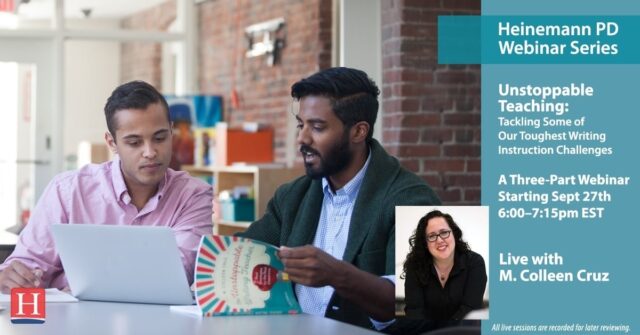What does a self-described “17th level geek” have to tell teachers about reading? In this article, author Ethan Gilsdorf warns against the message that “reading is good for you.”
What does a self-described “17th level geek” have to tell teachers about reading? In this article, author Ethan Gilsdorf warns against the message that “reading is good for you.”
Why “Books Are Good for You” Is Bad for Us
Written by Ethan Gilsdorf
Literature, along with the written word in general, has arrived at a funny rest stop in our collective journey into the great unknown of twenty-first-century culture. On the one hand, publishing is booming. The power of print on demand, self-publishing, and e-books and the ubiquity of online sales means hundreds of thousands of new book titles are being advertised each year. Everyone, it seems, who wants to be an author can be an author.
But who is reading this proliferation of books? According to the NOP World Culture Score Index, in 2005 (the most recent data available), the average American spent just 5.7 hours a week reading books; compared with other nations, this ranks twenty-third on the world reader board. (The top three? Chinese spend 8 hours a week, Thais 9.5, and Indians log almost 11 hours.) One can logically assume this U.S. figure has shrunk even further in the years since. The news gets worse: a 2013 Huffington Post/YouGov survey found that 41 percent of Americans had not read a book of fiction, and 42 percent hadn’t cracked a book of nonfiction, in the past year.
So what, then, are we reading? We are not reading the doorstopper novels of yore, but rather, other shorter forms of written language now occupy our time: emails, tweets, texts, and status updates.
Literary writing has similarly downsized, notwithstanding the seeming desire of every American to write the next vampire apocalypse thriller. We all do, in fact, write more—but less. All of us, whether we fancy ourselves “writers” or not, are becoming wordsmiths of the super-short, tossed-off, informal, and informational “meeting at 2pm in west conference room” variety. We use the written word more each day than perhaps at any other time in history, but we’re not consuming, or producing, epic poems, dense historical narratives, or serialized fiction á la Dickens, let alone trashy bodice-rippers, as much as we used to.
This is all rather depressing to hear, especially as it falls on the not-deaf ears of teachers of writing and literature. As lovers of story and narrative, analysis and discourse, we long for, well, longer forms. As language use gets reduced to 140 characters or less, we fear the ripple effect. The pleasures we’ve always afforded reading, and the intellectual and emotional benefits we’ve gleaned historically from narrative works like novels, now seem in doubt. And we worry, are these lengthier, attention-demanding literary experiences being devalued?
Given this anxiety, it’s not surprising that we’re seeing a spate of studies proving how “good” books are for us. In these investigations and experiments, researchers extol the benefits of a regimen of reading, as a holistic doctor might prescribe raw foods or a high-fiber diet. Again and again, journal articles show that reading novels with deep characters and an emotionally complex dynamic makes us better people.
 In the most recent study on the topic, published in the December, 2013, issue of Brain Connectivity, Emory University researchers found that reading a historical thriller about the eruption of Mt. Vesuvius and its hero, who attempts to save the life of a woman he loves, led to “heightened connectivity in the brain” and lasting “neurological changes” similar to the way muscle memory works. “Reading a novel can transport you into the body of the protagonist,” said the study leader, neuroscientist Professor Gregory Berns, as reported in The Independent (UK). In an October, 2013, issue of Science, another report, titled “Reading Literary Fiction Improves Theory of Mind,” [http://www.sciencemag.org/content/342/6156/377.short] concluded that fiction improved readers’ “ability to attribute mental states to oneself and others and to understand that others have mental states that are different from one’s own.” In other words, reading equals empathy.
In the most recent study on the topic, published in the December, 2013, issue of Brain Connectivity, Emory University researchers found that reading a historical thriller about the eruption of Mt. Vesuvius and its hero, who attempts to save the life of a woman he loves, led to “heightened connectivity in the brain” and lasting “neurological changes” similar to the way muscle memory works. “Reading a novel can transport you into the body of the protagonist,” said the study leader, neuroscientist Professor Gregory Berns, as reported in The Independent (UK). In an October, 2013, issue of Science, another report, titled “Reading Literary Fiction Improves Theory of Mind,” [http://www.sciencemag.org/content/342/6156/377.short] concluded that fiction improved readers’ “ability to attribute mental states to oneself and others and to understand that others have mental states that are different from one’s own.” In other words, reading equals empathy.
The studies go on from there. Recent research has suggested that reading literary fiction can also improve our decision-making, better our social skills, “affect our personalities,” and “make people more comfortable with uncertainty.”
Science has come to the rescue once again, supporting that which we’ve suspected all along: reading is good for you. We’ve always agreed that books are fun, diversionary, and entertaining. Now they are scientifically proven to be as healthy as a bowl of bran flakes and a jog around the park.
But doesn’t using science to justify the merits of literature and relying on laboratory research to tell us books make us better human beings feel a little desperate? I think so. We need to widen the lens again—be holistic rather than reductive—regarding the claims being made for why we read. To me, as a teacher and writer, this new kind of literary analysis makes me skeptical and more than a little depressed.
First, can the effects of reading fiction actually be measured? Perhaps I’m a romantic, but I’m not so sure. Something ephemeral and magical takes place when text passes from the page via the eye into the human imagination—an indefinable synergy creates waves of emotion and compassion. Literature transmits the human condition, the human heart, and human soul to readers; it connects us to our past, making us feel less alone, along with other intangible benefits. Can that be reduced to the results of laboratory tests?
Furthermore, scientifically justifying the value of a good book reflects the sad state of our cultural landscape. Previous generations read because they craved story and insights into how the human species ticked (as well as escape, entertainment, and diversion). Nowadays, the field of play is bigger. We have more media expressly designed to deliver these narratives—movies, serialized TV, video games. Maybe it’s a sign of the waning power of books. The printed page has competition.
Perhaps science coming to the rescue is not a surprising state of affairs. American culture has always been driven by results. Profits. Numbers. The bottom line. We’re lean and mean. We don’t pretend to have much time or patience for superfluous or nonmeasurable activities that drain resources and take our eyes off the ball, unless, that is, these activities can make us better people. If Americans universally value one thing, it’s self-improvement: the promise that a new, improved you is just a diet change and prescribed course of medical treatment away. Good literature can now stake a claim within that territory. It’s too bad we can’t simply have faith that reading is good, and important, and worthwhile, without having to enumerate its positive effects, by subjecting its wholesomeness to the microscope.
That being said, as a writing teacher, I probably shouldn’t be so grumpy about research helping to boost the cultural relevance of literature and reading. After all, these data are further ammunition against those naysayers who argue the arts are a luxury. Now school boards and our elected officials can claim books make us better leaders, better decision makers, better businesspeople, as they attempt to restore arts funding to slashed budgets.
But the final irony is that novels risk becoming chores we ought to finish, for our own good, rather than objects of pleasure. Is it too farfetched to imagine a time when a doctor or therapist might recommend reading the way you might approach your workout at the gym? “One rep of Austen, then three reps of
Woolf or Chekhov,” your Fit Lit trainer barks. “Then, to reward yourself, a cool-down with Dan Brown.”
Or, perhaps the sales and self-help pitch comes from the authors themselves. I can picture the infomercial: Don’t you wish that big flabby brain and pale personality would instantly become more lean and less mean? That there was a proven product that could help you make more friends, become a success at your job, and become a better lover? In short, a product to help you excel in your ability to read other people?
Hi, I’m Lit-Fitness Celebrity J. K. Rowling. If you’re as busy as I am, then stay tuned, because I’m excited to share with you the most innovative piece of emotional and interpersonal exercise equipment ever. I’m talking about the fastest, easiest way to make lightning-fast decisions and get your empathy into its best shape ever. Introducing, the Great American Novel. Available now, for the low price of $24.95, plus shipping and handling. And if you order now, we’ll send you this slimming volume of Emily Dickinson, absolutely free! Operators are standing by.
So, too, apparently, are scientists.
A version of this article originally appeared on WBUR’s Cognoscenti.
 Author Bio
Author Bio
Ethan Gilsdorf is a journalist, memoirist, critic, poet, and teacher. He wrote the award-winning travel memoir investigation Fantasy Freaks and Gaming Geeks: An Epic Quest for Reality Among Role Players, Online Gamers, and Other Dwellers of Imaginary Realms. Gilsdorf's articles, essays, op-ed pieces, and reviews on the arts, pop culture, film, books, gaming, geek culture, and travel regularly appear in the New York Times, Boston Globe, Salon.com, BoingBoing.net, PsychologyToday.com, GeekDad, Washington Post, and wired.com, as well as dozens of other magazines, newspapers, websites and guidebooks worldwide. He lives in Somerville, Massachusetts. More info at www.ethangilsdorf.com or follow him on Twitter @ethanfreak.


